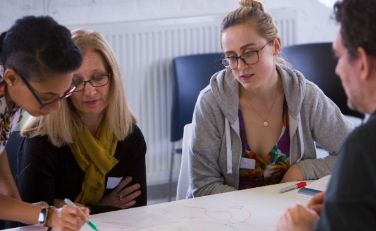
Social networks and connections
Social connections and networks are important for wellbeing


Social connections and networks are important for wellbeing

Staying connected is more important than ever. Strong, supportive relationships – whether family or with the wider community and faith groups – are one of the most important factors to help us thrive.
Loneliness can affect any of us, any time, and can lead to poor mental and physical health. Many people, of all ages, reported higher levels of loneliness and isolation during the pandemic. But there were also many acts of kindness, amazing selflessness, and innovative ways to connect virtually.
There are many ways to connect in-person and digitally. Here we outline some free resources to support you and others to stay connected, alongside how you can help to build a greater awareness of loneliness, remove the stigma, and promote social connection.
Read the Marmalade Trust’s range of tips and guidance, including ideas around starting a gratitude journal or even joining an online group as ways of supporting loneliness.
Find tips for young people on tackling loneliness, read how people like you have coped, and discover where to get more help if you need it, on the Young Minds website.
For a lot of us, particularly those in later life, loneliness can define our lives and have a significant impact on our wellbeing. But Age UK can help you feel less alone.
Worried about a friend or loved one? It’s not always easy to raise the subject, but our conversation starter has advice on getting people talking.
There are plenty of simple actions you can take to help lift someone out of loneliness and in doing so, it might help you to feel less lonely too.
Explore listening tips from Samaritans. Listening is an important skill. Ask open questions that start with "how", "what", "where" or "when". This can help people open up.